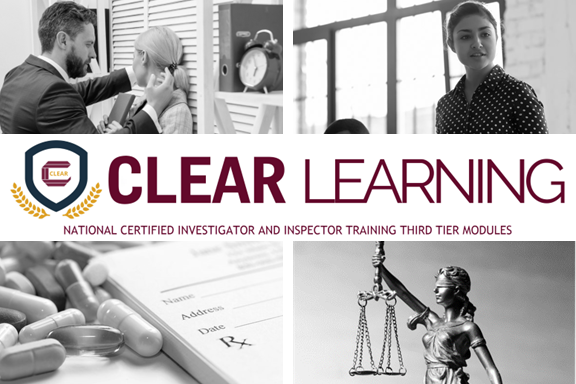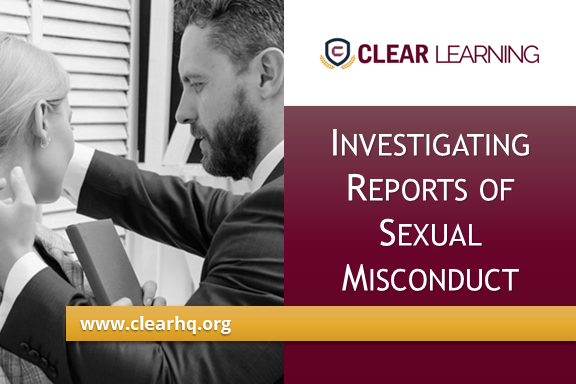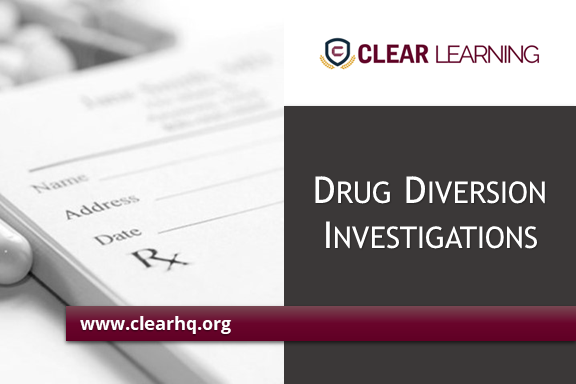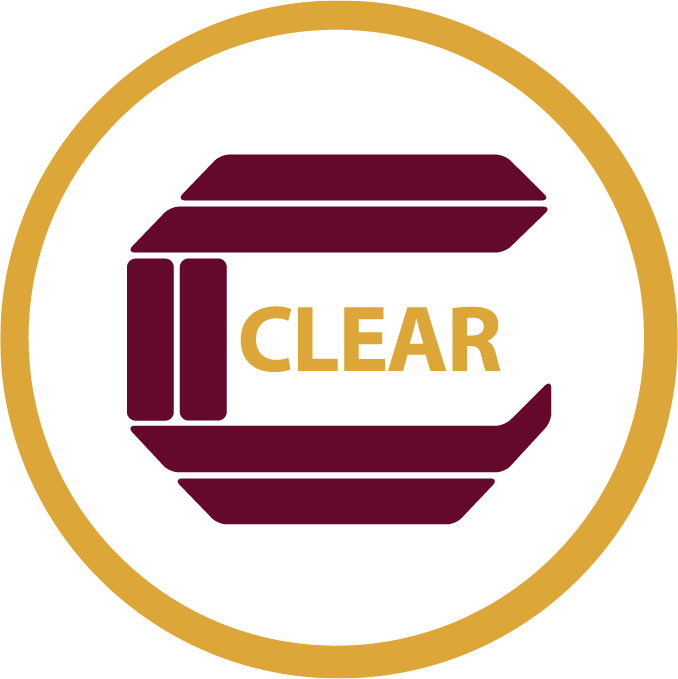NCIT Third Tier Programs
In addition to the core NCIT program curriculum, CLEAR is pleased to offer additional programs targeting specific issues and topics for compliance and discipline professionals.


This workshop focuses on sexual misconduct issues that regulators encounter during the course of these investigations. Upon completion of this workshop learners will be able to:
- Understand why cases involving sexual misconduct require special attention.
- Demonstrate sensitivity to the special needs of an investigation involving sexual misconduct.
- Identify the resources necessary to assist you during your investigations of alleged sexual misconduct.
- Recognize the importance of taking care of your own mental and emotional health as you conduct investigations into reports of sexual misconduct.
- Identify the signs of vicarious trauma.
Topics include:
- Defining sexual misconduct
- Interviewing person(s) of interest
- Interviewing complainants and witnesses
- Types of evidence
- Vicarious trauma and investigator self-care
This workshop is available for in-person or virtual instruction. The virtual program contains a self-study component in our online learning management system that is to be completed prior to attending two two-hour instructor-led virtual classrooms. These classrooms include the following components:
- A high-level overview of self-study content
- Question & Answer discussion of key topics
- Small group discussions of case studies of sexual misconduct investigations conducted by regulatory agencies.

The Drug Diversion Investigation program provides a comprehensive overview of identifying, addressing, and preventing drug diversion in healthcare settings. Participants will learn about motives driving drug diversion, types of drugs diverted, accountability systems, methods of diversion, and impacts on individuals and society. The course covers regulatory frameworks, investigative techniques, and collaborative approaches necessary to combat drug diversion effectively. By enrolling in this program, individuals will gain valuable insights into safeguarding patient welfare, maintaining regulatory compliance, and addressing misconduct effectively, making it an essential course investigators and regulatory authorities looking to enhance their skills in combating drug diversion.

The ability to communicate effectively is a key component of being a successful investigator. Effective communication involves conveying your thoughts and positions to others as clearly, concisely, and unambiguously as possible and, in turn, receiving information that others are providing to you with as little distortion and misunderstanding as possible. Good communication skills can serve to improve operational efficiency and productivity in the workplace and increase the confidence level of employees. On the other hand, poor communication skills may cause message misinterpretation or misunderstanding and lead to roadblocks in getting desired information. This session introduces participants to key components for effective communication including preparation and delivery techniques, the use of language and physicality to get your point across, listening skills, and the use of presentation aids.

Investigators are called upon to apply professional judgment to ever-changing factual situations as they perform their duties. These discretionary decisions coupled with the authority possessed by an investigator during the process can have very real consequences for all parties involved including the licensee, the department or agency the investigator represents and the investigator. There is a need to ensure that the investigator understands the importance of maintaining high ethical standards in carrying out his or her duties including the exercise of professional judgment. This course is designed to provide students with an advanced understanding of guidelines for ethical behavior as a regulatory investigator. The course reviews models for professional conduct and behavior by examining ethical standards establish by statute or governmental policy and professional ethical standards, explores the concepts of conflict of interests and scope of liability as they relate to public employment in general and the work of the investigator in specific and considers practical applications of ethical dilemmas through case studies and scenarios.
Click the View Event Calendar button below to view the full list of CLEAR events. Use the Search and Category bars at the top of the Events page to easily find the program for you. Registration fees are available in the event calendar.
